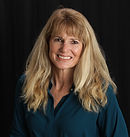A Backwards Road to Publishing
- Mar 29, 2017
- 3 min read
“I bon’t reab well…I hate reabing. It’s slom, harb and confusinq.” That was me, until eighth grade. Mrs. Salmon tried to flunk me; she was my first-grade teacher. My dyslexia made reading so perplexing and laborious that as a child I never read. Not a single book. My mother read to me throughout grammar school — I loved the stories even though I couldn’t read the words. She was my champion and kept me from being held back. She knew I had a brain, albeit one with a bit of a wiring problem. She said I’d catch up.
Mom was right. Eventually my brain figured out how to identify the letters I reversed, the bs and ds, ps and qs, and to tell left from right…at least most of the time. I then read voraciously; I tried to make up for lost time. Fast forward to college, made possible by financial aid, a series of part-time jobs and scholarships. I learned early in my college career that I still couldn’t spell but I could tell stories. My term papers got high marks, as long as one my friends proofed them. What career spoke to me? Journalism.

Seems backwards, right? One should probably be a big reader before becoming a writer. But then dyslexics do everything backwards. The way I look at it the tenacity I developed struggling to learn to read became a huge advantage in the hard-scrabble world of journalism. A reporter has to go out and get the story…before he or she can write it.
Jump ahead to the present time: I’ve enjoyed a long and rewarding career writing and editing for newspapers and magazines. I rose through the journalism ranks in Silicon Valley, covering the fast-paced and entrepreneurial tech industry…a business rife with dyslexics. I’ve thrived; it hasn’t been a job, it’s been a calling. I’m still reporting as a contributor to a daily newspaper, and I write occasionally for other publications. And I became a voracious reader, consuming nonfiction, memoirs, autobiographies and novels of nearly every genre. Along the way, I also set my mind on moving into fiction writing, telling stories I craft, instead of recount.
Of course, I’ve gone after this goal with my usual obstinacy, working back to front, hitting a wall, reversing, hitting it again…harder. I completed my first novel, THE HOOK: Surfing to Survive a Shattered Family, Drugs, Gangs and the FBI, after a struggle of nearly a decade.
I didn’t study point of view, structure, plot, building tension, fleshing out characters. Nor did I start with mastering the short story. I didn’t get an MFA either, no funds. I sat down and I wrote, instinctively telling the story bouncing around in my head. Then I rewrote it, a few times…and then revised…and revised again…and yet again. When I felt I had a whole story, I hired a writing coach to help me polish it and to guide me in making crucial decisions about which sections to keep and which ones to toss.
Just two weeks ago, I officially launched THE HOOK. It has received glowing reviews from readers as well as editorial reviewers. I’m awed, humbled and so thankful. Even better, each reader is taking something different from the novel, which is how art should be.
There’s hope. Perhaps my book will attract an audience beyond my friends and family. Indie authors are incredibly supportive of each other. And some friends, and even new acquaintances, have gone out of their way to promote my novel and help me understand this crazy business.
However, being an indie author (short for independent and thus without backing…um yeah, the hard route) requires grit. The game is fixed and pay-to-play. Online retailers and book distributors treat you like a guppy to be schooled and then eaten — they dictate delivery schedules and they won’t tell you details about book orders or delivery dates. Booksellers will carry your book…often for a fee. Book bloggers seem like an avenue for indie book marketing, but no, their blog real estate is mostly bought and paid for by the big publishers and their publicity arms. Newspapers aren’t doing many book reviews anymore, and they only want to see titles from name authors, preferably award-winners.
As an indie author you’re on the outside, finding ways around the rules and roadblocks. But then again that’s where I’ve always been.
And I never give up.


















Comments